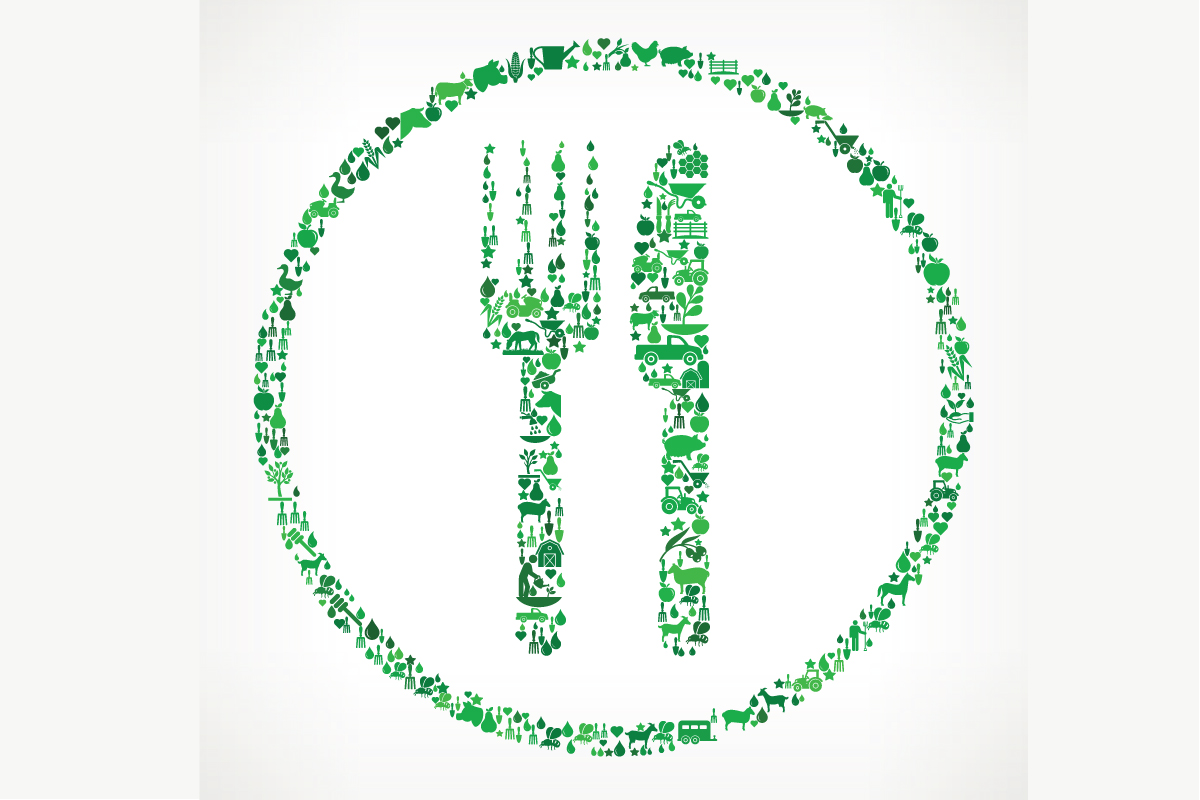Grapefruit. Cabbage soup. Low-carb. Low-cal. South Beach. Atkins.
Many people have tried one of these fad diets at some point in their lives. Most of the time those fad diets don’t work — 95% of people who lose weight by dieting regain it in 1 to 5 years.
So, many people are making a change: instead of modifying their diets temporarily to lose weight, they are changing them permanently to achieve wellness or weight loss, or to treat certain health conditions.
Here are the facts about a few of today’s most popular diets.
Vegetarian
What it is
No meat, including red meat, poultry, seafood or other animal flesh. There are 2 main categories of vegetarian: vegan (see below) and lacto-ovo, or vegetarians who eat only non-animal foods (fruits, vegetables, nuts, soy) but also eat animal byproducts (yogurt, eggs, dairy).
Why some people do it
- To express respect for sentient life
- To advocate for animal rights
- To adhere to religious beliefs
- To improve health
- To help the environment
What to consider
Vegetarianism is typically a healthy way to eat because plants are full of nutrients. Vegetarians must be sure they are getting key nutrients including protein, fatty acids, iron, zinc, iodine, calcium and vitamins D and B-12.
Vegan
What it is
No meat + no animal byproducts.
Why some people do it
Many of the reasons people become vegetarians also apply to why some people become vegan – to exclude all forms of animal exploitation and cruelty, whether for food, clothing or any other purpose.
What to consider
To get the proper amount of amino acids and nutrients, most vegans need to eat soy protein: the only vegetable protein which is as complete as animal protein. A mixture of beans and grains can suffice, but education is key for nutrition.
Ketogenic (Keto)
What it is
A low-carb diet in which the goal is to get more calories from fat and less from carbohydrates. The carbs that are most restricted are those that are easy to digest (sugar, soda, white bread).
By taking in fewer of those carbs, the goal is for the body to start breaking down fat for energy (“ketosis”), which can make you lose weight. There is also a version of the ketogenic diet that includes more protein than the standard version.
Why people do it
- To lose weight
- To control epilepsy in children
- To prevent heart disease and certain brain diseases
- To treat and control acne
What to consider
Constipation, low blood sugar or indigestion can occur. Infrequently low-carb diets can also lead to kidney stones. Starting and stopping a low-carb diet makes it difficult to stay in ketosis, which is key to maintenance, and to ensuring you don’t gain weight from the extra fat intake.
Gluten-free
What it is
A diet that excludes gluten, a protein found in grains such as wheat, barley and rye.
Why people do it
- To manage celiac disease and other medical conditions associated with gluten
- To improve health
- To lose weight
- To increase energy
Most clinical studies of gluten-free diets have been conducted with people who have celiac disease, so there is little clinical evidence of the benefits applying to a gluten-free diet in the general population.
What to consider
Removing gluten from your diet can change your overall intake of fiber, vitamins and other nutrients. You will need to carefully read nutrition and medication labels as gluten is frequently used as a binder.
Paleo
What it is
Based on foods similar to those of the Paleolithic era (2.5 million to 10,000 years ago), the diet prioritizes lean meats, fish, fruits, vegetables, nuts and seeds (aka foods that would’ve been hunted or gathered). The diet limits foods that became common with the advent of farming including dairy, legumes and grains.
Why people do it
To return to a way of eating that’s more like what early humans ate. The diet hypothesizes that the practice of farming changed what humans ate very quickly, and the human body couldn’t adapt fast enough, which ultimately led to obesity, diabetes and heart disease.
What to consider
Because a paleo diet is rich in vegetables, fruits and nuts, it is largely considered healthy.
- The absence of whole grains and legumes (sources of fiber, vitamins, etc.) and dairy (protein, calcium) must be accounted for with other foods.
- Some people find the diet is expensive as it relies on wild game, grass-fed animals and nuts.
Mediterranean
What it is
Inspired by the eating habits of Greece, Italy and Spain, the basics of the diet are:
- Eating primarily plant-based foods (produce, whole grains, legumes, nuts)
- Replacing butter with healthy fats (olive oil)
- Using herbs and spices instead of salt for flavor
- Eating fish and poultry frequently (twice per week)
- Only eating red meat a few times per month
Why people do it
- To reduce the risk of heart disease
- To possibly reduce the risk of cancer, Parkinson’s and Alzheimer’s diseases, and breast cancer
- To lose weight
What to consider
With guidelines fairly closely aligned to the “healthy plate” designed by Harvard scholars, there are few health concerns with the Mediterranean diet, though some say it can be expensive.
For more information about healthy eating and nutrition, click here.
Get more information about specific health terms, topics and conditions to better manage your health on bcbst.com. BlueCross BlueShield of Tennessee members can access wellness-related discounts on fitness products, gym memberships, healthy eating and more through Blue365®. BCBST members can also find tools and resources to help improve health and well-being by logging into BlueAccess and going to the Managing Your Health tab.






2 Comments
WellTuned provides inspiration and practical advice for healthy living.
WellTuned does not offer medical advice. Any personal health questions should be addressed to your doctor.